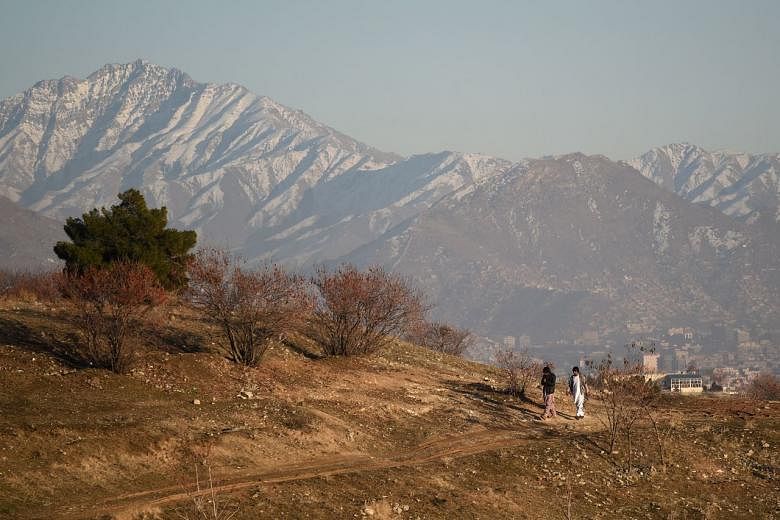KABUL (AFP) - A week-long partial truce took hold across Afghanistan on Saturday (Feb 22), with some jubilant civilians dancing in the streets as the war-weary country woke up to what is potentially a major turning point in its long conflict.
The Taleban, United States and Afghan forces have all agreed to a so-called "reduction in violence" which, if it holds, will be only the second lull in fighting since 2001.
It is expected to set the conditions for Washington and the insurgents to sign a deal that could, ultimately, pull American troops out after more than 18 years and launch war-weary Afghanistan into an uncertain future.
"It is the first morning that I go out without the fear of being killed by a bomb or suicide bomber. I hope it continues forever," taxi driver Habib Ullah told AFP in Kabul early on Saturday.
A successful week would show that the Taleban can control their forces and demonstrate good faith ahead of any signing, which both the US and the insurgents have said could be done on Feb 29 in Doha.
It also give a much-needed respite to civilians, who have long borne the brunt of the bloody war. The UN said last year that more than 100,000 people have been killed or wounded in Afghanistan in the last decade.
In southern Kandahar, considered the Taleban heartland, and eastern Jalalabad, dozens of Afghans could be seen dancing the attan - a traditional Pashtun dance - in the streets in celebration overnight.
In Kabul, which for years now has been one of the deadliest places in the country for civilians, those who spoke to AFP were slightly more wary.
"A temporary break in war is good but we want a permanent ceasefire," said government worker Fazul Rahman, adding he also wants peace talks between the Taleban and Kabul to begin "as soon as possible".
Shopkeeper Emamuddin, who like many Afghans goes by one name, said Afghans want peace "whatever it takes".
"A week of no violence will pass in a blink of the eye," he said. "They should find a long-lasting solution for this country's problem."
Details of how exactly the reduction in violence will work have remained scant.
The US has said there is an "understanding" for a "significant and nationwide reduction in violence across Afghanistan", while Afghan security forces will remain "on active defence status" during the week.
"The Taleban must demonstrate their commitment to a meaningful reduction in violence," US Secretary of Defence Mark Esper said on Twitter.
"Should the Taleban reject the path of peace, we remain prepared to defend ourselves and our Afghan partners," he added.
In Kandahar, one insurgent told AFP he had received orders to stand down - but another said he had only been ordered to refrain from attacking major cities and highways.
Any truce comes fraught with danger, and analysts warn the attempt to stem Afghanistan's bloodshed is laced with complications and could fail at any time.
Since the US invasion in 2001, there has been only one other pause in the fighting - a surprise three-day ceasefire between the Taleban and Kabul marking the religious festival of Eid in 2018.
Afghans responded joyfully, with Taleban fighters, security forces and civilians hugging, sharing ice creams and posing for selfies in previously unimaginable scenes.
Washington has been in talks with the Taleban for more than a year to secure a deal which would see it would pull out about half of the 12,000-13,000 troops currently in Afghanistan.
In return, the Taleban would give security guarantees and a promise to hold peace talks with the government in Kabul.
On Thursday the group's deputy leader, Sirajuddin Haqqani, penned an extraordinary op-ed in the New York Times in which he stated the insurgents are "fully committed" to standing by the agreement.

